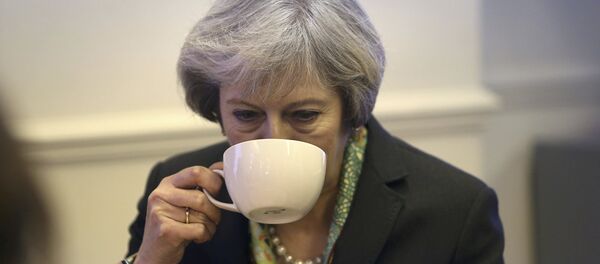Kristian Rouz – As UK economic growth is projected to slow down this year after a robust expansion in the two quarters following the Brexit vote on 23 June, the gears of the nation’s productive forces are poised to shift the power away from London.
The British economy is expected to slow in the coming three years as foreign trade will become more prominent in the structure of the UK’s GDP, while the significance of domestic consumption will diminish amidst the higher inflationary pressure. A likely increase in exports will help the UK return to prosperity in the medium-term perspective, yet, in the meantime, the sterling’s devaluation and gradual shifts in the labor market from the London-based financials to manufacturing jobs up north will contribute to greater uncertainty and lower investment overall.
According to a report by Ernst & Young Item Club, the British economy will expand only 1.7pc this year and just 1pc in 2018 as higher inflation will affect the disposable incomes of UK consumers. Domestic consumption currently drives roughly 79pc of the UK’s GDP, and is projected to decline in the post-Brexit reality, whilst the share of exports will increase along with a pickup in manufacturing, making international trade the driving force of the British economy.
Confidence in the UK financial services sector, meanwhile, hit its lowest since 2008. Given that the lion’s share of the British financials are located in London, the economic prominence of Canary Wharf will likely diminish is the coming years.
“The fall in the pound should help boost exports in the near term. However, trade performance and growth in 2019 and beyond will depend critically upon the exit terms that can be agreed with the EU27 and other countries,” Peter Spencer of Item Club said. “Theresa May has provided some clarity on the UK’s Brexit objectives. But with elections in the Netherlands, France and Germany due later this year, it will take longer to get the same clarity on the views of the EU27 and the shape of the ensuing negotiations.”
Over the past two decades, the British economy has relied heavily on its powerful financial enterprises, generating billions of pounds in revenues from banking, trading, and investment activities. However, this economic model is deemed obsolete in the post-Brexit reality as a neo-industrial landscape is gradually shaping up in areas north of Birmingham. The economic reforms of Margaret Thatcher decimated the industrial capacity of the UK in the 1980s, but now the once-thriving, but long-forgotten towns centred around factories and mines, warehouses and ship wharfs, are on the verge of an unlikely comeback.
Now the UK’s banking sector is facing carnage in jobs, with up to 25,000 out of the total of 400,000 financial sector jobs being potentially subject to elimination. Meanwhile, the avidly pro-Brexit areas, such as East Midlands, Lincolnshire, East Anglia, and Essex could add some 160,000 jobs, including, but not limited to, manufacturing, fishing, tourism, and energy, according to a research from the New Economics Foundation. Job creation, however, takes a while, whereas jobs cuts happen with only a short notice at best, meaning the UK labour market might be in for painful disruptions.
Still, UK inflation has barely reached 1.6pc in December 2016, and, albeit poised to overshoot the Bank of England’s (BOE) 2-percent target in the coming months, is still quite modest. Unemployment might rise from the current 4.8pc to 6pc by late 2018, but during the same period, UK exports are projected to increase by 3.3pc this year and 5.2pc in 2018, according to the Item Club observations.
All this means the British economy might be facing some tough times in the near-term, but will be back on track closer to the end of the decade.
"The hard bit comes from getting exports up to pick up the slack left by the fall in consumer spending," Item Club’s Spencer said.




